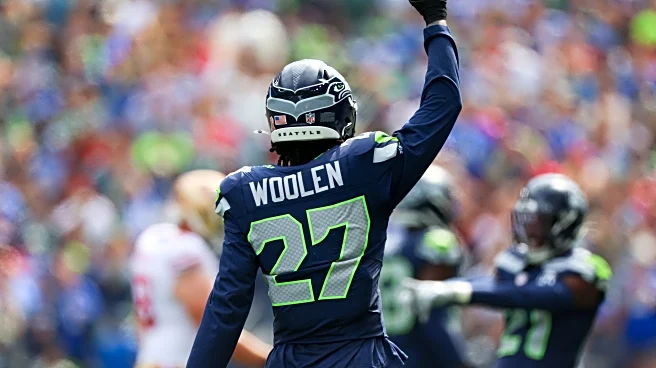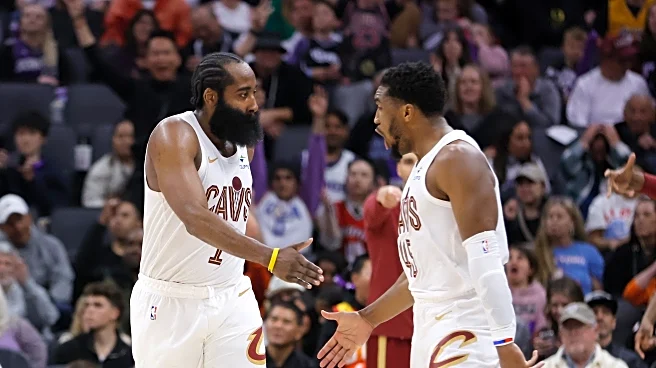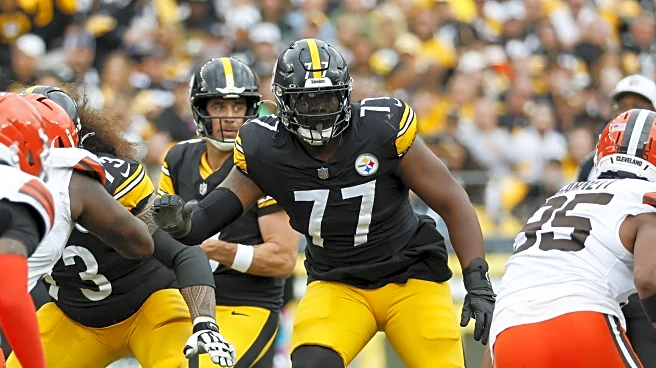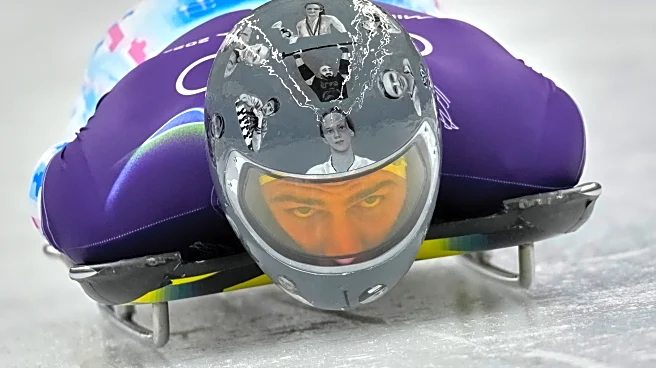What's Happening?
Deion Sanders, the head coach of the Colorado Buffaloes, announced he would undergo a medical procedure on Tuesday due to concerns about a recurrence of blood clots. Sanders, who has previously dealt with similar health issues, expressed confidence in his medical team at UC Health and his trainers, stating that the condition is hereditary and not related to his activities. Sanders has a history of blood clots, having experienced them during his tenure at Jackson State in 2021, which led to the removal of two toes on his left foot. Recently, he missed the Pac-12 media day due to surgery for blood clots in his right leg. Despite the health challenges, Sanders remains committed to his coaching duties, indicating he plans to return to practice promptly.
Why It's Important?
The health of Deion Sanders is significant not only for his personal well-being but also for the Colorado Buffaloes football program. Sanders has been a transformative figure in college football, bringing attention and success to the teams he coaches. His ability to continue leading the team could impact their performance and morale. Additionally, Sanders' openness about his health issues highlights the importance of addressing hereditary medical conditions and the role of healthcare in sports. His situation may prompt discussions on the support systems available for athletes and coaches dealing with health challenges.
What's Next?
Following the procedure, Sanders plans to return to his coaching duties, emphasizing his commitment to the team. The Colorado Buffaloes will continue their season, and Sanders' health will be closely monitored by his medical team. The team and fans will likely be supportive, hoping for a swift recovery. Sanders' experience may also lead to increased awareness and preventive measures for hereditary health conditions among athletes and coaches.
Beyond the Headlines
Sanders' situation underscores the broader issue of health management in sports, particularly for high-profile figures. It raises questions about the balance between professional responsibilities and personal health, and how sports organizations can better support their staff. The hereditary nature of Sanders' condition may also lead to discussions on genetic testing and preventive healthcare strategies in sports.










